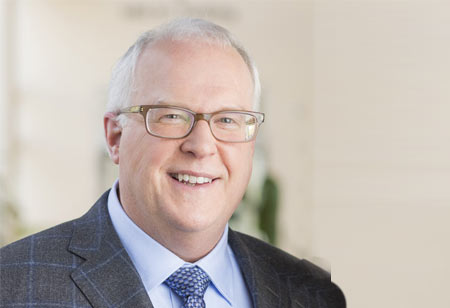Thank you for Subscribing to Healthcare Business Review Weekly Brief

Ethical Care and Management of Scarce Resources: a Call to Invest in Ethical Expertise in your Institution
Healthcare Business Review
On our daily rounds through the hospitals and clinics, enmeshed in a tri-demic of Covid, RSV, and Influenza, we are reminded of both the remarkable advances in care made possible by the developments in technology so often described in this newsletter and the potential shortage of those resources as our critically ill patient census explodes. Potentially insufficient supplies of ventilators, beds, IV pumps, monitors, and ECMO machines remind us of their integral role in modern healthcare as well as our utter dependence upon them to deliver the standard of care.
So, in the pandemic era, now reaching its fourth year, healthcare systems have been required to plan for negative impacts on the standard of care they provide, caused by scarce technological resources, as well as shortages in staffing and facility capacity. Imagine the tragedy and moral anguish for all concerned that might be caused by having to stand at the bedside of a baby in respiratory distress and telling her parents that you cannot save her because you do not have any more ventilators.
Such scenarios have happened before. The reader is urged to read Five Days at Memorial by Sheri Fink, written in 2013 about a hospital whose electrical system failed in the aftermath of Hurricane Katrina, leading to bedside triage of the most vulnerable patients. The wrenching nature of such decisions and the potential for harm inherent in their making are the reason that governmental and regulatory entities have dictated that hospitals must now create structures to rapidly identify triage teams that are ready for such contingencies.
When the day comes that you need a team to make the hardest triage decisions of all, in addition to wise and compassionate clinicians, you will be happy you planned ahead and can rely on the guidance of trained ethicists
Experts in ethics, who have had experience in supporting patients, families, and care teams in “normal” bedside decision-making about endof-life care and other complex decisions, are critically important in developing and staffing these triage teams. Yet, they are another scarce resource for most hospitals. As we have developed our technology and ‘wonder drugs’ to sustain life and fight disease, we have often found ourselves and our patients facing problematic decisions about invasive therapies in the setting of terminal conditions.
However, care teams, patients and families have frequently or usually not had the valuable support of trained ethicists in making those decisions, leading to painful and prolonged episodes of dying, as well as existential injury for families who are frequently scarred for the rest of their own lives.
This article is a plea, then, for hospitals and healthcare systems to develop ethics consultants from within or to hire those who are being trained around the country at some of our best universities and colleges. They will support institutions in four ways:
• consultations in situations in which patients, families, and care teams face problematic decisions about care options;
• education of care teams about ethical principles and their application in healthcare;
• planning and policy development for the dire settings of scarce resource allocation;
• advice and support for ethical policy development at the institutional level
Most notably, however, as you work on your resource budgets, as you try to anticipate your institution’s need for ventilators, beds, monitors, and nurses, you must keep in the back of your mind that no matter how much planning and purchasing you do, you are at some point potentially going to face the shortages that the unfortunate teams at Memorial encountered. We are in an era that will likely bring us rolling epidemics of new viruses and bacterial super-infections in the years to come, as well as natural and humancaused disasters of increasingly dire magnitude. We all have to plan for future shortages and the ethical dilemmas that will attend them, either at the bedside or as hospitals decide to reduce services that they can no longer afford. Budgeting to hire an ethicist is no longer a luxury but should be recognized now as a core need for all healthcare systems and hospitals.
It is important then to plan for these times and to do so with an ethics team at your side. Data show that ethics consultations available on a daily basis improve both patient and staff satisfaction. They support your leadership in considering the moral and practical implications of resource investment and allocation, as well as service line decisions. Finally, before you budget for your next new ventilator, budget for an ethicist. When the day comes that you need a team to make the hardest triage decisions of all, in addition to wise and compassionate clinicians, you will be happy you planned ahead and can rely on the guidance of trained ethicists.
Dr. Merrill is the Chief Medical Officer for the St. Charles Healthcare System in Bend, is co-chair of its ethics committee, and holds a Masters in Bioethics and the Medical Humanities from the University of Louisville









